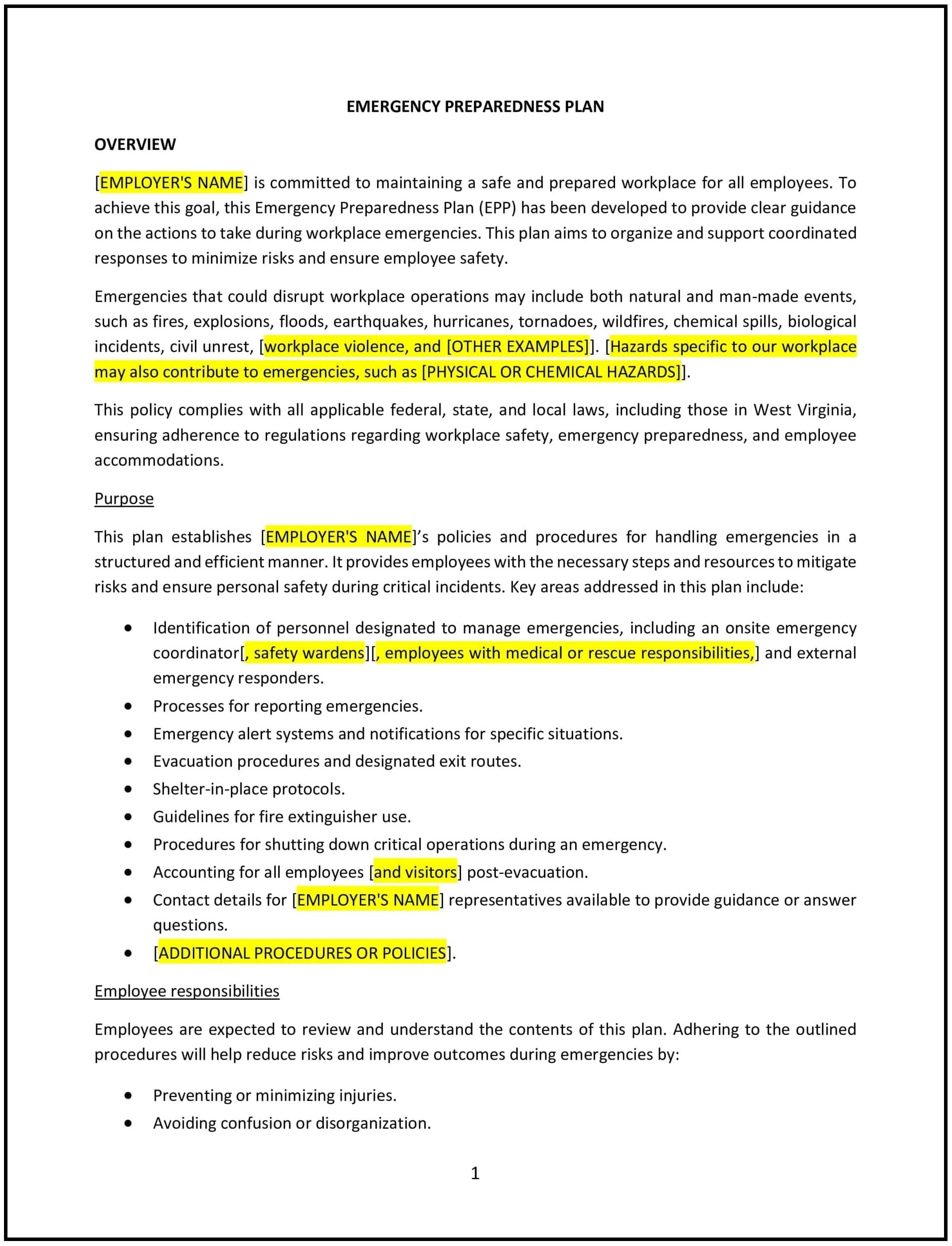Emergency preparedness plan (West Virginia): Free template
Got contracts to review? While you're here for policies, let Cobrief make contract review effortless—start your free review now.

Customize this template for free
Emergency preparedness plan (West Virginia)
In West Virginia, an emergency preparedness plan provides guidelines for responding to natural disasters, workplace accidents, or other emergencies to ensure the safety of employees and business continuity. This policy outlines the steps to prepare for, respond to, and recover from emergencies, addressing the specific needs and risks faced by businesses operating in the state.
The policy identifies roles and responsibilities, communication protocols, and procedures for handling various emergency scenarios.
How to use this emergency preparedness plan (West Virginia)
- Identify potential risks: List the types of emergencies relevant to West Virginia, such as floods, severe storms, fires, or chemical spills, and tailor the plan accordingly.
- Define roles and responsibilities: Assign specific roles for emergency response teams, including coordinators, first responders, and communication leads.
- Establish communication protocols: Provide clear guidelines for notifying employees, emergency services, and other stakeholders during an emergency.
- Outline evacuation procedures: Detail steps for safely evacuating employees, including designated meeting points and routes.
- Support compliance: Align the plan with West Virginia state laws, OSHA regulations, and industry-specific safety standards.
Benefits of using an emergency preparedness plan (West Virginia)
- Protects employee safety: Reduces risks to employees by providing clear procedures for handling emergencies.
- Promotes business continuity: Minimizes operational disruptions by ensuring the organization is prepared for emergencies.
- Supports compliance: Aligns with West Virginia safety regulations and OSHA standards, helping businesses meet legal and safety requirements.
- Enhances readiness: Improves the organization’s ability to respond to emergencies quickly and effectively.
- Builds employee confidence: Demonstrates a commitment to safety and preparedness, fostering trust and morale.
Tips for using an emergency preparedness plan (West Virginia)
- Conduct regular drills: Schedule fire, evacuation, and other emergency drills to ensure employees are familiar with the procedures.
- Train employees: Provide training on emergency protocols, including first aid, evacuation, and communication methods.
- Monitor risks: Regularly assess potential hazards and update the plan to address new or evolving risks.
- Maintain emergency supplies: Ensure the workplace is equipped with emergency kits, including first aid supplies, flashlights, and communication devices.
- Review and update: Periodically review the plan to reflect changes in West Virginia laws, workplace conditions, or best practices.